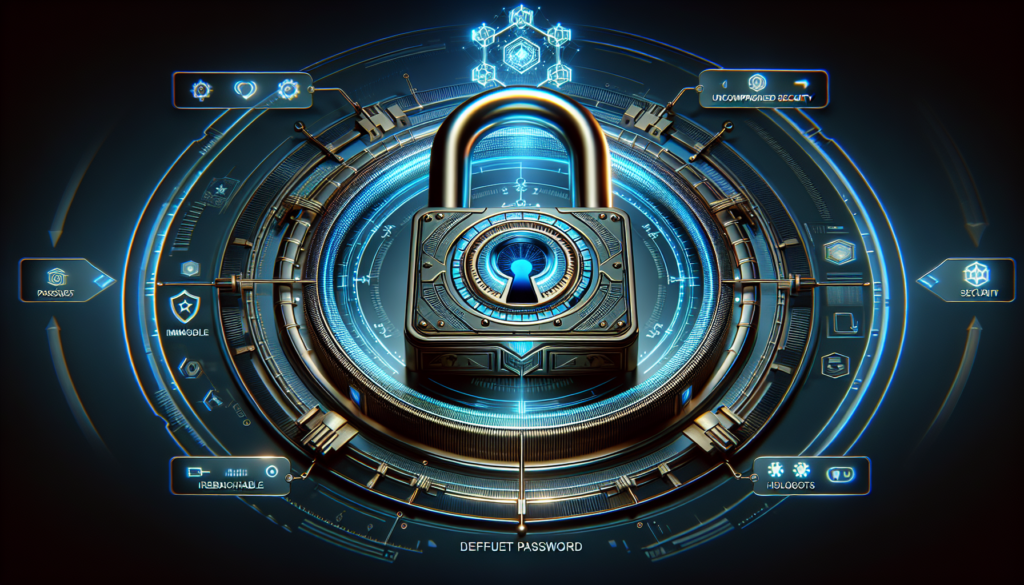Embarking on the journey of securing your network devices is pivotal, and knowing how to access and configure them is the cornerstone of maintaining robust security.
Let’s unlock the door to PfSense, setting you on course for a secured and seamless network experience.
Understanding PfSense
Significance of PfSense in Network Management
PfSense is a highly versatile, open-source firewall and router platform that is revered for its reliability and a vast array of features.
In your role as a network administrator or enthusiast, you’ll find that PfSense plays a crucial part in your network management toolkit. With its ability to provide a secure network environment, PfSense enables you to maintain control over all traffic, ensuring both performance and security across your network infrastructure.
Overview of PfSense Features and Capabilities
PfSense stands out with a rich feature set that makes it a comprehensive network management solution.
You have access to functionality such as VPN support, Dynamic DNS, captive portal, traffic shaping, and more.
It supports a wide range of networking hardware and can be installed on a physical computer or a virtual machine, giving you the flexibility to tailor the setup to your needs.
With PfSense, you can easily monitor network activity, block threats, and configure failover setups for redundancy to ensure continuous network uptime.

PfSense Default Credentials
Default Username and Password for PfSense
Upon your first installation of PfSense, it is essential to know the default credentials to gain access to the system.
The standard username is ‘admin’, and the password is ‘pfsense’.
You’ll need these credentials to log into the PfSense web interface and start configuring your device.
First-time Login Process
When you initially access the PfSense web interface, you should enter the default username and password provided.
Once logged in, it’s strongly recommended to proceed with the initial setup wizard that guides you through basic configuration tasks, including changing the default password for security reasons.
Securing PfSense
The Importance of Changing the Default Password
It cannot be stressed enough how critical it is to change the default password.
Keeping the default credentials makes it easy for unauthorized users to gain access to your network, potentially leading to data breaches and other security incidents.
It’s one of the simplest yet most effective steps you can take to bolster your network’s security.
Steps to Change the Default Password
Once logged in with the default credentials, navigate to the ‘System’ menu and select ‘User Manager’.
Click on the ‘admin’ user account, and enter a new password in the provided fields.
Make sure to save your changes before navigating away from the page.
Best Practices for Creating a Strong Password
When creating a new password, it’s best to craft something complex and unique.
A strong password typically includes a mix of upper and lower case letters, numbers, and symbols, and is at least 8 characters long.
Avoid common words and phrases, and refrain from using personal information that could be easily guessed.

PfSense Account Management
Managing Multiple User Accounts
PfSense allows you to create multiple user accounts with different levels of access.
This is particularly useful when you have a team managing the network.
To add a new account, go to the ‘User Manager’ under the ‘System’ menu and fill in the necessary details, assigning appropriate privileges to each user.
Recovering Lost Credentials
If you lose your PfSense credentials, you have to access the console either physically or through a remote management interface.
You can then reset the password for the ‘admin’ user from the console menu.
However, ensure that only authorized personnel can access the console to prevent misuse.
Setting Up Two-factor Authentication
For additional security, you can set up two-factor authentication (2FA) in PfSense.
This adds an extra layer of protection by requiring an additional piece of information besides the password during login.
Enable 2FA in the ‘User Manager’ settings and follow the instructions to configure it.
Accessing the PfSense Web Interface
Requirements for Accessing the PfSense Dashboard
To access the PfSense dashboard, ensure you have a computer connected to the network with a web browser installed.
Then, enter the PfSense appliance’s IP address into your browser’s address bar, which will bring you to the login page where you enter your credentials.
Troubleshooting Access Issues
If you’re experiencing difficulties accessing the PfSense web interface, check to ensure that the device’s network settings are correctly configured and that the IP address is entered correctly in the browser.
Also, verify that your workstation’s IP is allowed to access the PfSense UI if you have configured IP restrictions.
Network Security Key Concepts
Definition of a Network Security Key
A network security key is essentially a password you use to connect to a Wi-Fi network.
This key protects your network communications and prevents unwanted access, playing a fundamental role in securing your wireless connections.
How Network Security Keys Work in Relation to PfSense
In relation to PfSense, if you’re using it as a Wi-Fi access point or to manage one, you’ll be responsible for setting and managing the network security key.
You must ensure that it’s strong and secure, just like your PfSense admin password, to keep your wireless network safe from intruders.
PfSense Configuration and Setup
Initial Setup Wizard
After your first login, PfSense presents you with the Initial Setup Wizard.
This step-by-step guide assists you in configuring basic settings like the hostname, domain, DNS servers, and more.
It helps you get started with a solid foundation for your network’s configuration.
Configuring Basic Network Settings
Beyond the initial setup, you’ll want to configure basic network settings such as interfaces, IP addresses, and subnets.
PfSense makes this simple with an intuitive web interface; you can easily adjust these settings under the ‘Interfaces’ menu to match your network requirements.
Maintaining PfSense Security
Regularly Updating PfSense Software
To maintain a secure PfSense system, it’s crucial to keep the software up to date. Updates often contain security patches and enhancements.
Check for updates regularly in the ‘System Update’ menu and apply them as necessary.
Monitoring and Logging Security Events
Take advantage of PfSense’s monitoring and logging features to keep an eye on the health and security of your network.
Regularly review the security logs to identify any suspicious activity or unauthorized access attempts, and adjust your security settings accordingly.
Advanced PfSense Security Options
Implementing VLANs for Network Segmentation
One way to significantly enhance your network security is by implementing VLANs. VLANs can help you segment the network into different zones, each with its own set of access rules.
This makes it much harder for potential intruders to move laterally within your network.
Firewall Rules and Best Practices
PfSense’s powerful firewall is at the heart of its security features.
Apply best practices when setting up your firewall rules: allow only necessary traffic, apply the principle of least privilege, and ensure that every rule serves a clear purpose.
Regularly review and refine firewall rules to adapt to changing network demands and threat landscapes.
Help and Support for PfSense
Accessing Official PfSense Documentation
For detailed information and guidance, the official PfSense documentation is your go-to resource.
It covers everything from installation and configuration to advanced features and troubleshooting.
Communities and Forums for Peer Support
If you’re looking for community support, there are various PfSense forums and online communities where you can ask questions, share experiences, and learn from others.
Engaging with these communities can be invaluable, especially when facing unique challenges or needing practical advice.

